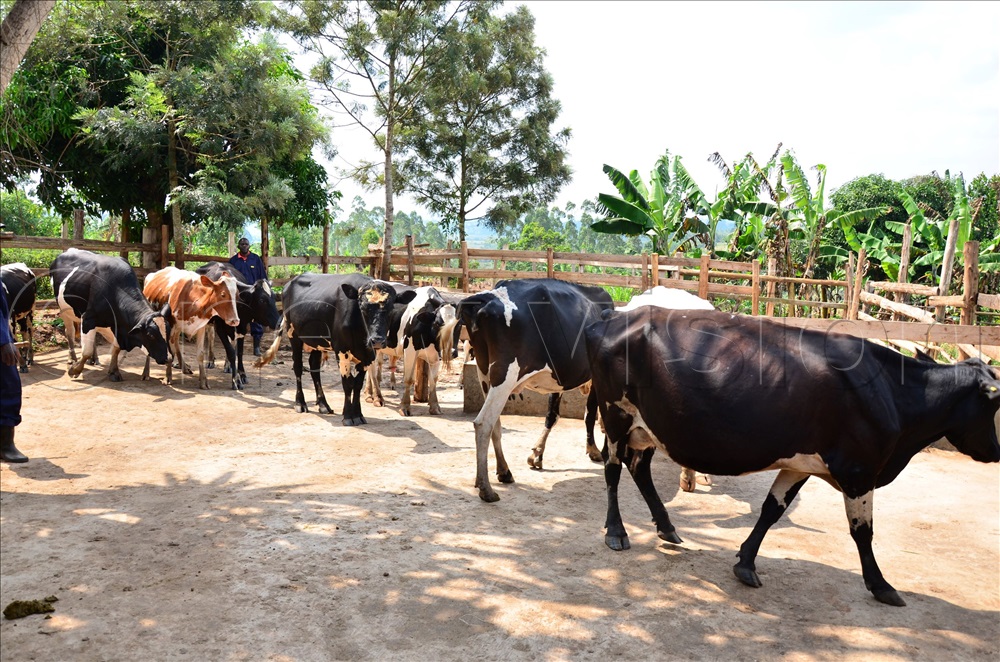By Umar Nsubuga
Milk is an important source of income for many small- and large-scale dairy farmers. With the dry season setting in, there is a need for farmers to intervene to maintain high milk yields.
For animals grazing in paddocks, you will notice that there is less grass for the animals. The lack of freshly sprouting grass means that there will even be less grass in the coming weeks.
You will notice that the cattle have to walk round and round the paddocks trying to get sufficient feed.
On the other hand, for the hundreds of dairy farmers practising zero-grazing, this is the time to work doubly hard to feed your animals. Even if you previously planted Napier grass, most of it is likely to be stunted because of the reduced moisture in the soil.
Some farmers are already supplementing the cultivated Napier grass harvest with elephant grass from the wild.

Kenneth Kabagambe, a dairy farmer and resident of Nyabugorogoro village, Kyenjojo district says if you are doing this, you have to be extra careful to protect your animals from pests like ticks which can be brought in the farm with the grass.
He says ticks are now more common in the wild because of the mass movement of cattle in search of fodder, most of which are not adequately protected against disease.
To maintain a reasonable milk yield, Kabagambe says it’s important to ensure that a special feeding programme is introduced. Cattle feed bought from the farm supply outlets may be expensive but an attractive alternative for the commercial dairy farmer.
“Maize bran is a good feed that provides energy to your animals. Let your animals get accustomed to feeding on bran,” he says.
In addition to the maize bran, he explains that things like banana stems are good as they provide both food and some water.
“Mix cattle cake, bought from the oil factories with the maize bran to make a rich meal. Mineral licks are also important,” he advises.
These can be obtained from the farm shops in your area. Molasses, which is obtained as a by-product from sugar factories, is a very good feed, which enriches your animal diet.
The molasses, which is a thick sweat black liquid can be mixed with the maize bran or sprinkled on feed.
“Remember to give a lot of drinking water to your animals, as they need it,” he notes.





